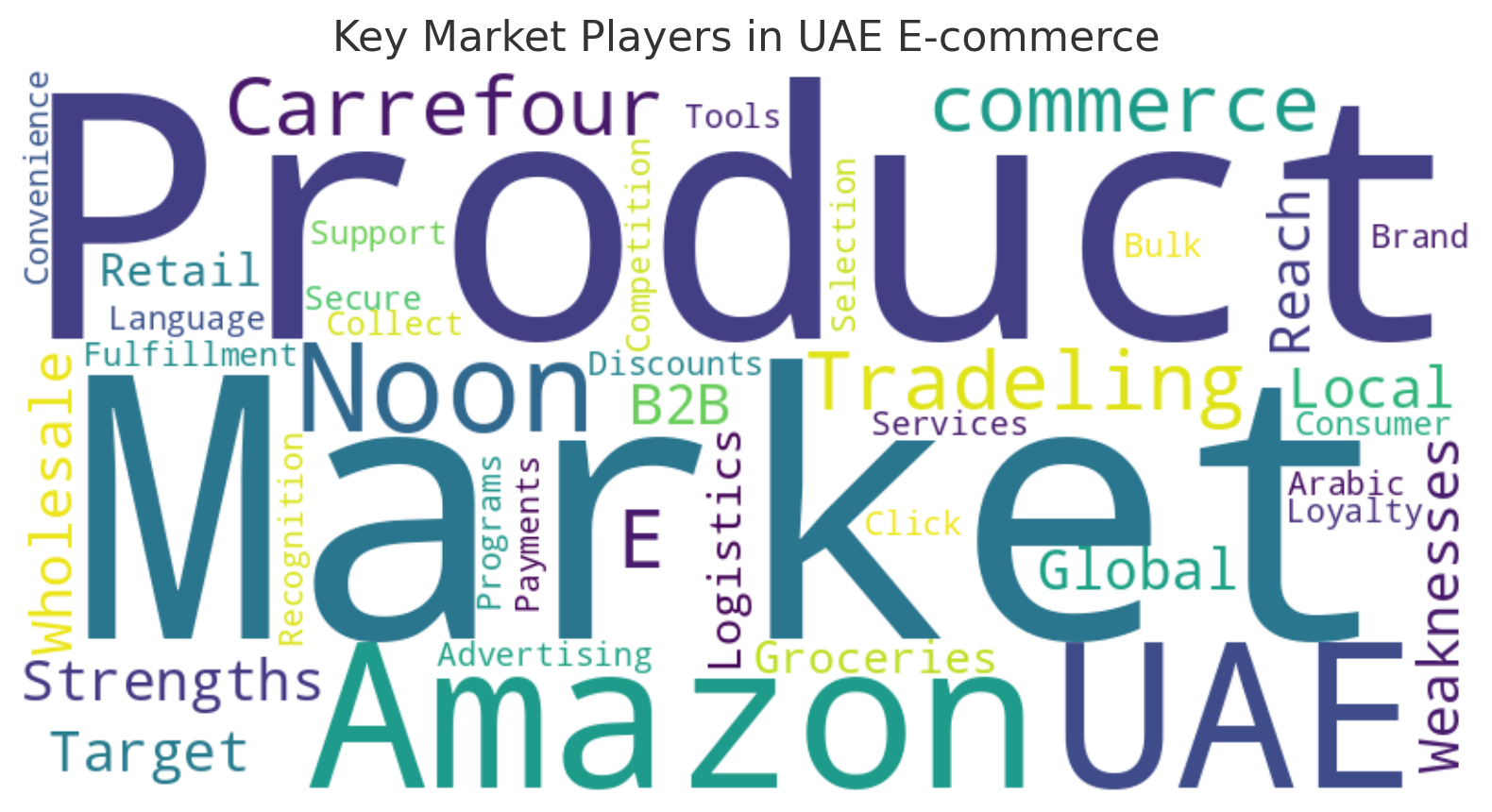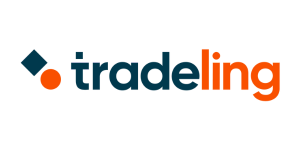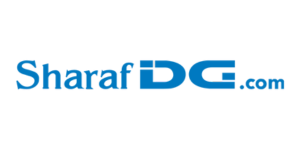The E-commerce Titans of the UAE
The United Arab Emirates (UAE) has emerged as a hotspot for e-commerce, driven by its tech-savvy population, high internet penetration, and robust logistics infrastructure. E-commerce marketplaces have revolutionized how consumers shop, offering convenience, variety, and competitive pricing. UAE Key Marketplace Players such as Amazon UAE, Noon, Tradeling, and Carrefour dominate the market, each bringing unique strengths and addressing distinct consumer needs. Understanding these platforms’ strengths, weaknesses, and target markets is crucial for sellers looking to optimize their strategies and for consumers aiming to make informed choices.
Amazon UAE: The Global Behemoth’s Local Footprint
Overview and Market Share
Amazon UAE, formerly known as Souq.com before its acquisition by Amazon in 2017, is a dominant force in the UAE’s e-commerce landscape. The platform seamlessly integrated into Amazon’s global network, providing UAE consumers access to a vast range of products and services. Amazon UAE enjoys a significant market share due to its global reputation, extensive product range, and superior customer service.
Strengths
- Vast Product Selection: Amazon UAE offers an unparalleled variety of products, from electronics and fashion to groceries and household items, catering to diverse consumer needs.
- Reliable Fulfillment Services (FBA): Amazon’s Fulfillment by Amazon (FBA) service ensures efficient storage, packaging, and delivery, enhancing customer satisfaction and trust.
- Strong Brand Reputation: Amazon’s global presence and established trust contribute to its strong brand reputation, encouraging more consumers to shop on its platform.
- Advanced Advertising Tools: Sellers benefit from Amazon’s sophisticated advertising and analytics tools, enabling targeted marketing and improved sales performance.
Weaknesses
- Competition Among Sellers: The vast number of sellers on Amazon UAE can lead to intense competition, making it challenging for new or small sellers to stand out.
- Complex Fee Structure: Amazon’s fee structure, including referral fees, fulfillment fees, and other charges, can be intricate and potentially costly for sellers.
- Strict Seller Requirements: Adapting to Amazon’s rigorous standards and requirements can be demanding, particularly for new sellers.
Target Market
Amazon UAE caters to a broad audience, including tech-savvy individuals, bargain hunters, and those seeking convenience and fast delivery. Its extensive product range appeals to a wide demographic, from young professionals to families.
Noon: The Homegrown Hero
Overview and Market Share
Noon, launched in 2017, is a prominent local e-commerce platform in the UAE. Founded by Emirati entrepreneur Mohamed Alabbar, Noon aims to provide a unique shopping experience tailored to the Middle Eastern market. With substantial backing and a focus on regional preferences, Noon has quickly become a key player in the UAE’s e-commerce sector.
Strengths
- Focus on Local Products and Brands: Noon prioritizes local brands and products, supporting regional businesses and catering to local tastes.
- Arabic Language Support: The platform offers robust Arabic language support, making it accessible to a wider audience in the UAE and other Arabic-speaking countries.
- Growing Selection of Categories: Noon continuously expands its product categories, offering everything from electronics and fashion to home goods and groceries.
Weaknesses
- Smaller Product Selection: Compared to Amazon, Noon’s product range is relatively smaller, which can limit choices for consumers.
- Limited International Presence: While Noon is a strong player in the UAE and Saudi Arabia, its international presence is not as extensive as Amazon’s.
- Developing Advertising Platform: Noon’s advertising and promotional tools are still evolving, which may not offer the same level of sophistication as Amazon’s.
Target Market
Noon’s target market includes UAE nationals, Arabic-speaking consumers, and those looking for local products and brands. Its user-friendly interface and regional focus appeal to a diverse demographic within the UAE.
Tradeling: The B2B E-commerce Specialist
Overview and Market Share
Tradeling is a leading B2B e-commerce platform in the UAE, launched in 2020. It specializes in connecting businesses with suppliers, offering a wide range of products and services for various industries. Tradeling addresses the unique needs of B2B transactions, providing a secure and efficient marketplace for wholesale trade.
Strengths
- Focus on Wholesale Trade: Tradeling’s specialization in B2B transactions allows for bulk purchases, catering to businesses of all sizes.
- Wide Range of Business Products and Services: The platform offers diverse products, from office supplies and electronics to industrial equipment and raw materials.
- Bulk Discounts: Businesses benefit from competitive pricing and bulk discounts, reducing procurement costs.
- Secure Payment Options: Tradeling ensures secure payment options, fostering trust and reliability in B2B transactions.
Weaknesses
- Limited to B2B Transactions: Tradeling’s focus on B2B means it does not cater to individual consumers, limiting its market scope.
- Less Consumer Awareness: Compared to B2C platforms like Amazon and Noon, Tradeling has lower consumer awareness, which can impact its visibility.
- Relatively New Player: As a newer entrant in the market, Tradeling is still building its reputation and market share.
Target Market
Tradeling targets businesses of all sizes, from small enterprises to large corporations. Its platform is ideal for procurement professionals and those seeking bulk purchases and wholesale deals.
Carrefour: The Retail Giant’s Online Expansion
Overview and Market Share
Carrefour, a well-established retail chain in the UAE, has significantly expanded its online presence in recent years. Operated by Majid Al Futtaim in the region, Carrefour combines its strong offline presence with a growing e-commerce platform, offering a wide range of products, including groceries, electronics, and household items.
Strengths
- Strong Brand Recognition: Carrefour’s long-standing reputation and extensive network of physical stores enhance its credibility and customer trust.
- Wide Range of Products: The platform offers an extensive selection, particularly in groceries and household items, catering to everyday needs.
- Convenient Click-and-Collect Options: Carrefour provides convenient click-and-collect services, allowing customers to pick up online orders from physical stores.
- Loyalty Programs: Carrefour’s loyalty programs, such as MyCLUB, offer rewards and discounts, encouraging repeat purchases.
Weaknesses
- Focus on Groceries and Household Items: Carrefour’s primary focus on groceries and household items can limit its appeal for those seeking other product categories.
- Less Competitive Prices: For certain product categories, Carrefour’s prices may not be as competitive as those on dedicated e-commerce platforms.
- Less Developed Online Interface: Compared to e-commerce giants like Amazon, Carrefour’s online interface may lack some advanced features and user experience enhancements.
Target Market
Carrefour’s target market includes families, everyday shoppers, and those seeking convenience and a wide range of household products. Its reputation for quality and reliability appeals to a broad demographic.
Choosing the Right Platform for Your Business
Selecting the appropriate e-commerce platform depends on various factors, including product categories, target audience, fees, and services. Here’s a comparative analysis of the key players:
Amazon UAE:
- Strengths: Vast product selection, reliable fulfillment services, strong brand reputation, advanced advertising tools.
- Weaknesses: Intense competition among sellers, complex fee structure, stringent seller requirements.
- Best For: Sellers with a wide range of products aiming for a large, diverse customer base.
Noon:
- Strengths: Focus on local products, Arabic language support, growing product categories.
- Weaknesses: Smaller product selection, limited international presence, developing advertising platform.
- Best For: Sellers targeting UAE nationals and Arabic-speaking consumers, and those with local products.
Tradeling:
- Strengths: Specialization in B2B, bulk discounts, secure payment options.
- Weaknesses: Limited to B2B, less consumer awareness, relatively new market presence.
- Best For: Businesses seeking wholesale trade and bulk purchases.
Carrefour:
- Strengths: Strong brand recognition, wide range of groceries and household products, convenient click-and-collect options, loyalty programs.
- Weaknesses: Focus on groceries, less competitive prices for non-grocery items, less developed online interface.
- Best For: Sellers of groceries and household items, targeting everyday shoppers and families.
Conclusion: Thriving in the Competitive UAE E-commerce Market
Understanding the strengths and weaknesses of each e-commerce platform is essential for making informed decisions. Amazon UAE offers extensive reach and a broad product range, ideal for large-scale sellers. Noon provides a localized shopping experience, catering to the regional market. Tradeling excels in B2B transactions, supporting wholesale trade. Carrefour leverages its retail presence to offer a reliable option for everyday shoppers.
To thrive in the competitive UAE e-commerce market, businesses must leverage the unique advantages of each platform. By aligning their strategies with the strengths and target markets of these e-commerce giants, sellers can maximize their reach and success. Whether aiming for wide-ranging consumer access, focusing on local products, targeting businesses, or offering household essentials, there is a platform to suit every need. As the e-commerce landscape continues to evolve, staying informed and adaptable will be key to long-term success.









I’m extremely impressed ԝith your writing skills as well as ᴡith the
layout ߋn yoսr weblog. Іs tһis a paid theme оr ԁіd you modify іt yoursеlf?
Anyway keеp up the excellent quality writing, іt’ѕ rare to sеe a nice blog ⅼike thіѕ օne todаy.
my blog post สล็อต